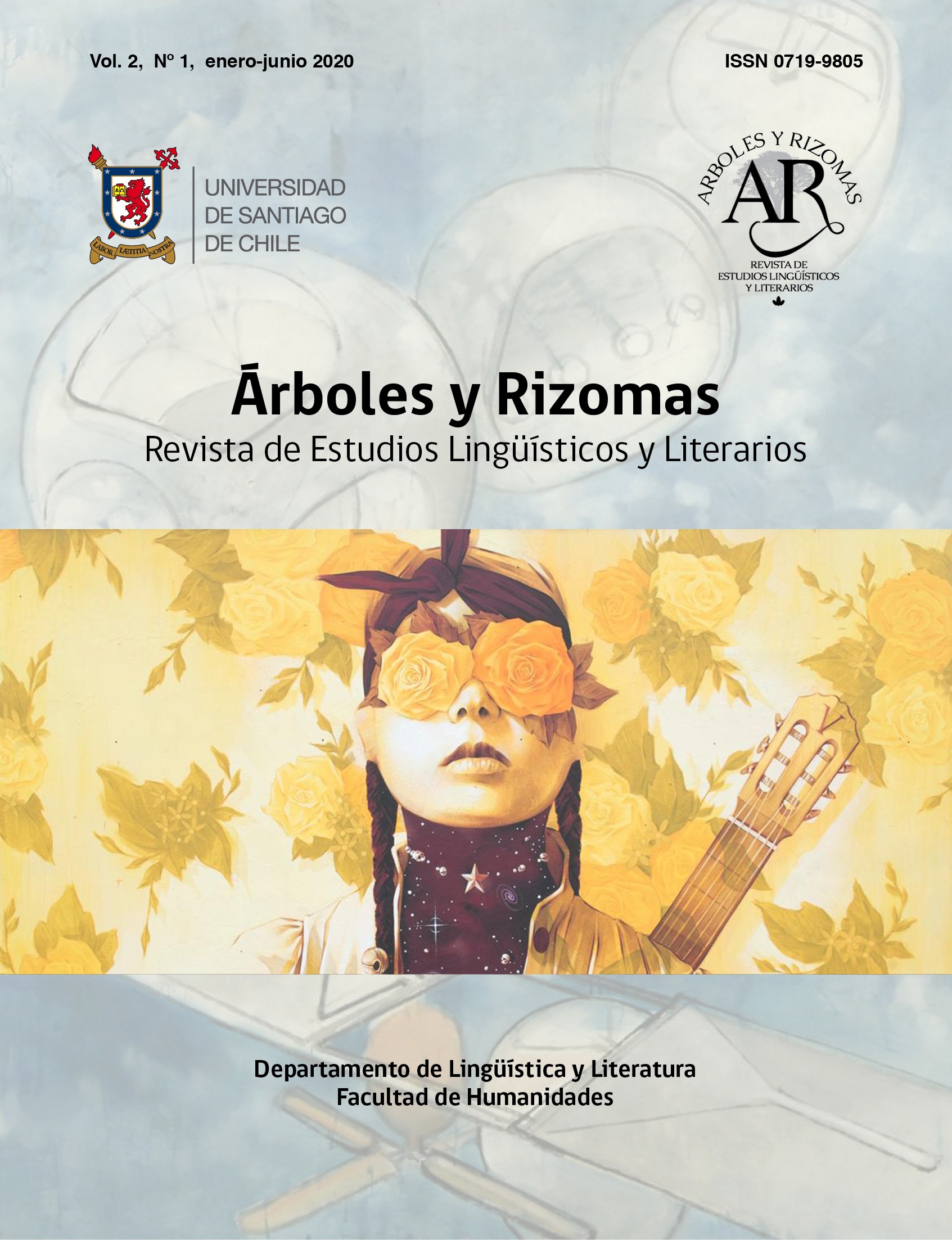Vygotsky’s theory of language and Hegel’s philosophy of the spirit
DOI:
https://doi.org/10.35588/ayr.v2i1.4088Keywords:
spirit, language, will, individual, higher psychological processesAbstract
This article presents an interpretation of Vygotsky’s theory of language within the framework of the implications of Hegel’s philosophy of the spirit. It seeks to reveal that language is a mode of universal and singular unity, or of social and individual, within which there is no room for extremes that separate them without mediating the relationship. Language is thus presented as a model to understand notions as unity of practice and theory or as rational volition, allowing us to assume the inherent participation of the socio-historical elements in individualisation processes. This model does not assume ontological originalities or insurmountable leaps between one sphere and the other. To this end, Hegelian philosophy is summarily discussed in relation to language and spirit. Various arguments are then highlighted on the constructive role of language in understanding the world. Finally, Vygotsky's theory of language and the possible contributions of intelligibility, interpreted from Hegel's philosophy, are presented.
Downloads
References
Adorno, T. (2017). Ontología y dialéctica. Lecciones sobre la filosofía de Heidegger. Buenos Aires: Eterna cadencia.
Badiou, A. (2014). La aventura de la filosofía francesa. Santiago: Lom.
Benveniste, E. (1997). Categorías de pensamiento y categorías de la lengua. Problemas de lingüística general I. México D.F.: Siglo XXI.
Cassirer, E. (2016). Filosofía de las formas simbólicas. I. El lenguaje. México D.F.: FCE.
Cole, M., & Wertsch, J. (1996), Beyond the Individual. Social Antinomy in Discussions of Piaget and Vygotsky. Human Development, 39 (5), 250-256. https://doi.org/10.1159/000278475
Dri, R. (2007). Hegel y la lógica de la liberación. Buenos Aires: Biblos.
Duque, F. (2015). La era de la crítica. Madrid: Akal.
Gadamer, H. G. (2011). La dialéctica de Hegel. Madrid: Cátedra.
Gil, J. M. (2001). Introducción a las teorías lingüísticas del siglo XX. Santiago: Ril.
Goethe, J. W. (2007). Fausto. (Felipe Ruiz Noriega Trad.). Madrid: Edaf.
Habermas, J. (1990). Pensamiento posmetafísico. México D.F.: Taurus.
Habermas, J. (1994). El discurso filosófico de la modernidad. Madrid: Taurus.
Habermas, J. (2015a). Teoría y praxis. Madrid: Tecnos.
Habermas, J. (2015b). Ciencia y técnica como ideología. Madrid: Tecnos.
Hegel, G.W.F. (1999). Enciclopedia de las ciencias filosóficas. Madrid: Alianza.
Hegel, G.W.F. (2006). Filosofía real. Madrid: FCE.
Hegel, G.W.F. (2007). Lecciones de estética. Madrid: Akal.
Hegel, G.W.F. (2009). Fenomenología del espíritu. Buenos Aires: FCE.
Heidegger, M. (1994). Poéticamente habita el hombre. Conferencias y artículos. Barcelona: Ediciones del Serbal.
Henrich, D. (1990). Hegel en su contexto. Caracas: Monte Ávila.
Iliénkov, E. (2017). Pensamiento y lenguaje en Hegel. Recuperado de
https://marxismocritico.com/2017/06/23/pensamiento-y-lenguaje-en-hegel/
Kant, I. (2005). Crítica de la razón práctica. (Ed. Bilingüe). México D.F.: FCE.
Kant, I. (2007). Crítica de la razón pura. (Mario Caimi trad.). Buenos Aires: Coligue.
Labarriere, P. J. (1985). La fenomenología del espíritu de Hegel. México D.F.: FCE.
Lefebre, H. (1967). Lenguaje y sociedad. Buenos Aires: Proteo.
Leontiev, A.N. (1978). Actividad, conciencia y personalidad. Buenos Aires: Nueva Visión.
Lukács, G. (1969). Prolegómenos a una estética marxista. Barcelona: Grijalbo.
Lukács, G. (2016). Ontología del ser social. El trabajo. Buenos Aires: Herramienta.
Luria, A.R. (2000). Conciencia y lenguaje. Madrid: Visor Dis.
Marcuse, H. (2017). Razón y revolución. Madrid: Alianza.
Marx, K. (2010a). La ideología alemana (I) y otros escritos filosóficos. Buenos Aires: Losada.
Marx, K. (2010b). El capital. Crítica de la economía política. Tomo I. (Cristian Fazio C. Trad.). Santiago: Lom.
Ormeño, J. (Ed). (2016). Acciones, razones y agentes. Santiago: Lom.
Pérez Soto, C. (2008a). Desde Hegel. México D.F.: Ítaca.
Pérez Soto, C. (2008b). Sobre un concepto histórico de ciencia. Santiago: Lom.
Piaget. J. (1981). Comentarios sobre las observaciones críticas de Vygotsky. Journal for the Study of Education and Development, 4(1), 37-48. https://doi.org/10.1080/02103702.1981.10821887
Rancière, J. (2010). El maestro ignorante. Barcelona: Laertes.
Rivano, J. (1960). Experiencia del error y doctrina del conocimiento. Revista de Filosofía. 7(1-2), 93-136.
Rossi Landi, F. (1992). El lenguaje. En R. Williams (Ed.) Historia de la comunicación Vol.1. (pp.45-83). Barcelona: Bosch.
Rossi Landi, F. (1974). Ideología de la relatividad lingüística. Barcelona: Nueva Visión. https://doi.org/10.1515/9783110812893
Sapir, E. (1994). El lenguaje. México D.F.: FCE.
Sapir, E. (2013). El lenguaje. Introducción al estudio del habla. México D.F.: FCE.
Sartre, J.P. (1963). Crítica de la razón dialéctica. Libro I. Buenos Aires: Losada.
Schaff, A. (1967). Lenguaje y conocimiento. México D.F.: Grijalbo.
Schelling, F. (2005). Sistema del idealismo trascendental. Barcelona: Anthropos.
Seve, L. (2013). Del caso Bajtín al caso Vigotsky. Marx pensador de la individualidad humana. Recuperado de https://marxismocritico.com/2013/12/30/del-caso-bajtin-al-caso-vigotsky
Simon, J. (1982). El problema del lenguaje en Hegel. Madrid: Taurus.
Taylor, Ch. (2005). La libertad de los modernos. Buenos Aires: Amorrortu.
Taylor, Ch. (2014). Hegel y la sociedad moderna. México D.F.: FCE.
Urrutia, M., & De Vega, M. (2012). Lenguaje y acción. Una revisión actual a las teorías corpóreas. Revista de lingüística aplicada y teórica. 50 (1), 39-67. https://doi.org/10.4067/S0718-48832012000100003
Valls Plana, R. (1994). Del yo al nosotros. Barcelona: PPU.
Vygotsky, L.S., Leontiev, A. y Luria, A. (2011). Psicología y pedagogía. Madrid: Akal.
Vygotsky, L.S. (1995). El desarrollo de los procesos psicológicos superiores. Barcelona: Crítica.
Vygotsky, L.S. (2010). Teoría de las emociones. Madrid: Akal.
Vygotsky, L.S. (2014a). Obras escogidas. Vol I. Madrid: Machado.
Vygotsky, L.S. (2014b). Obras escogidas. Vol. II. Madrid: Machado.
Volóshinov, V. (2009). El marxismo y la filosofía del lenguaje. Buenos Aires: Godot.
Volóshinov, V. (1999). Freudismo. Un bosquejo crítico. Buenos Aires: Paidós.
Wittgenstein, L. (2009). Tractatus logico-philosophicus. Investigaciones filosóficas. Sobre la certeza. Madrid: Gredos.
Wright, D. (2007). La hipótesis Sapir-Whorf: una evaluación crítica. Revista Caleidoscopio, 2, 7-26. https://doi.org/10.33064/22crscsh369
Žižek, S. (2015). Introducción. Menos que nada. Hegel y la sombra del materialismo dialéctico. Madrid: Akal.






